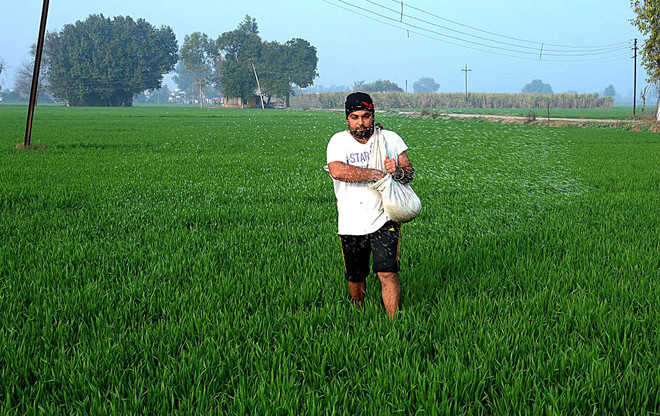Tribune News Service
Jalandhar, January 31
Discussions over ill-effects of insecticides, fertilisers and pesticides might not be a new issue, but a new order released by the Punjab Government has revived the concern over the matter.
The government has finally woken up from its slumber and has decided to ban as many as 20 insecticides in Punjab, with immediate effect. The insecticides that have been banned have severe effects on the health of people and environment.
The decision has been taken after a registration committee, Punjab Agriculture University (PAU) and Punjab State Farmers’ Commission (PFSC) apprised the government of the harmful effects of insecticides on environment and human beings.
The order reads, “It has been brought to the notice of the state government by Punjab Agriculture University (PAU), Ludhiana, and the Punjab State Farmers’ Commission (PFSC) that 20 insecticides which have harmful effects on human beings, environment and economic viability, are being sold in the market.
The order added that keeping in view the recommendations, the sale of insecticides should be discontinued in the state immediately.
The orders were released on January 30 and the department has been directed to review all licences given for these insecticides and further not to issue any licence for these insecticides from February 1.
The insecticides that have been banned are phosphamidon, tricholorophon, dicofol, methomyl, thiophanate methyl, endosulfan, bifenthrin, carbosulfan, chlorfenapyr, dazomet, diflubenzuron, fenitothion, metaldehude, kasugamycin, ethofenprox, phorate, triazophos, alachlor and monocrotophos.
Agriculture officials said the gestation period of these insecticides was longer than other insecticides.
“They can be found in the soil even after years, and create various health issues, which is why these insecticides have been banned,” said an official.
Dr Ranjot Singh Bains, Agriculture development officer, Rashtriya Krishi Bima Yojana (RKBY), said the government had taken an appreciable step to ban these insecticides which could pose a great threat.
“These insecticides have severe effects on the food chain and banning these will ultimately promise food safety to the humans,” said the officer.
Kamaljit Hayer, a farmer who has been associated with the Kheti Virasat Mission (KVM), said the decision had come very late. It should have been taken much earlier as these affect a person’s health adversely.
“In other countries, the insecticides have already been banned and we hope that this decision will be implemented properly in India,” said Hayer who has been doing organic farming for the past five years.
Unlock Exclusive Insights with The Tribune Premium
Take your experience further with Premium access.
Thought-provoking Opinions, Expert Analysis, In-depth Insights and other Member Only Benefits
Already a Member? Sign In Now










